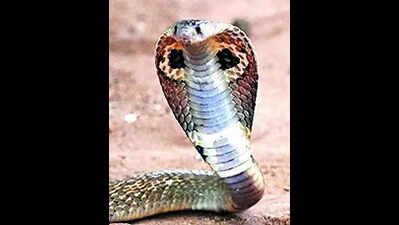ARTICLE AD BOX

Guwahati: Is it possible for a lifeless cobra or krait strike and bite even after death? Doctors and researchers in Assam have reported the world's first scientifically documented cases of envenomation (poisoning caused by venom) by dead monocled cobras (Naja kaouthia) and a black krait.
This unprecedented finding expands the understanding of postmortem venom delivery in snakes.Dr Surajit Giri, an anaesthesiologist at Demow Rural Community Health Centre in Sivasagar district, along with four other doctors and researchers, have documented two cases of dead monocled cobra bites, reported at Demow in Sivasagar, and one case of a dead black krait in Kamrup district.The cases took place in 2022-23, Giri said, adding that previously, scientific documentation of envenomation by dead snakes was limited to rattlesnake cases.
The new evidence from Assam marks a significant advancement in toxinology and emergency medicine.The study was published on Aug 19 in 'Frontiers in Tropical Diseases', a collaborative and multidisciplinary journal publishing cutting-edge research on pathophysiology and control of diseases that occur solely or predominantly in tropical regions, with a focus on integrative prevention, control and treatment methods, and the challenges associated with them in the most vulnerable populations.
The first case attended by Giri involved a man bitten by the severed head of a freshly decapitated monocled cobra, while discarding the snake. He experienced severe pain and vomiting and was treated with 20 vials of antivenom, pain relief, and wound care. Extensive ulceration required weeks of debridement, but the patient eventually healed fully.Giri's second case concerned a farmer who was bitten on the foot by a monocled cobra crushed under a tractor.
The patient developed severe cytotoxic symptoms at the bite site and received 20 vials of antivenom, antibiotics, and wound management, recovering over 25 days.On the other hand, the third case attended by Hemend Nath, department of paediatrics at Boko Rural Community Health Centre in Kamrup, involved a man envenomed by handling the head of a black krait (Bungarus lividus or B. niger) that had been dead for three hours."Initially ignored due to minimal pain, the bite led to delayed neurotoxic symptoms - ptosis, dysphagia and quadriplegia - requiring antivenoms and 43 hours of respiratory support. Full recovery followed after six days in hospital," the researchers stated in the paper.Giri said the cases demonstrate the ability of dead or decapitated snakes to involuntarily deliver venom through reflex muscular contractions or the expulsion of residual venom stored in the venom apparatus - even hours after death - especially in front-fanged species like cobras and kraits. He said, "Severity of envenoming is comparable to live bites and requires the same antivenom and interventions."



.png)
.png)
.png)
















 3 hours ago
3
3 hours ago
3









 English (US) ·
English (US) ·